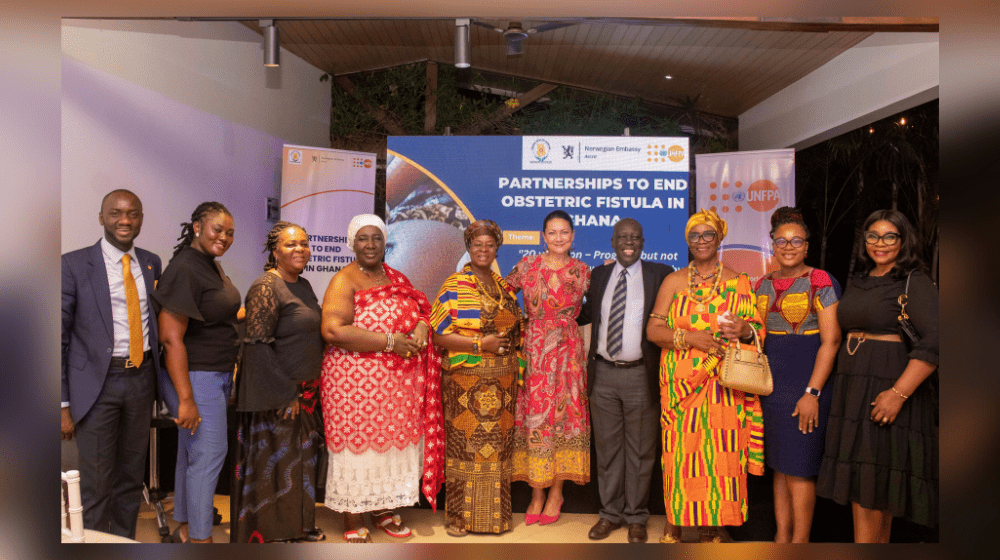Every year on May 23, the world comes together to observe the International Day to End Obstetric Fistula (IDEOF), a medical condition that affects women in the process of childbirth. Obstetric Fistula occurs when a hole forms between the birth canal or rectum, resulting in uncontrollable leaking of urine and faeces.
Globally, it is estimated that about 500,000 women and girls live with fistula with new cases being recorded every year. In Ghana, figures show that about 1,300 cases occur every year. The condition stems from a number of factors including protracted childbirth, child marriage and also, lack of skilled midwifery or high-quality maternal care.
The commemoration of this year’s IDEOF was on the theme: “20 Years On⸺Progress but not Enough! Act Now to End Fistula by 2030.” And as part of this year’s observation of the International Day, the Embassy of Norway in collaboration with UNFPA, mobilized various actors in Government, the diplomatic/international development community, civil society, traditional rulership, the private sector, as well as the media, for an event to bring attention to ending Obstetric Fistula in Ghana. The event was dubbed: “Partnerships to End Obstetric Fistula in Ghana.
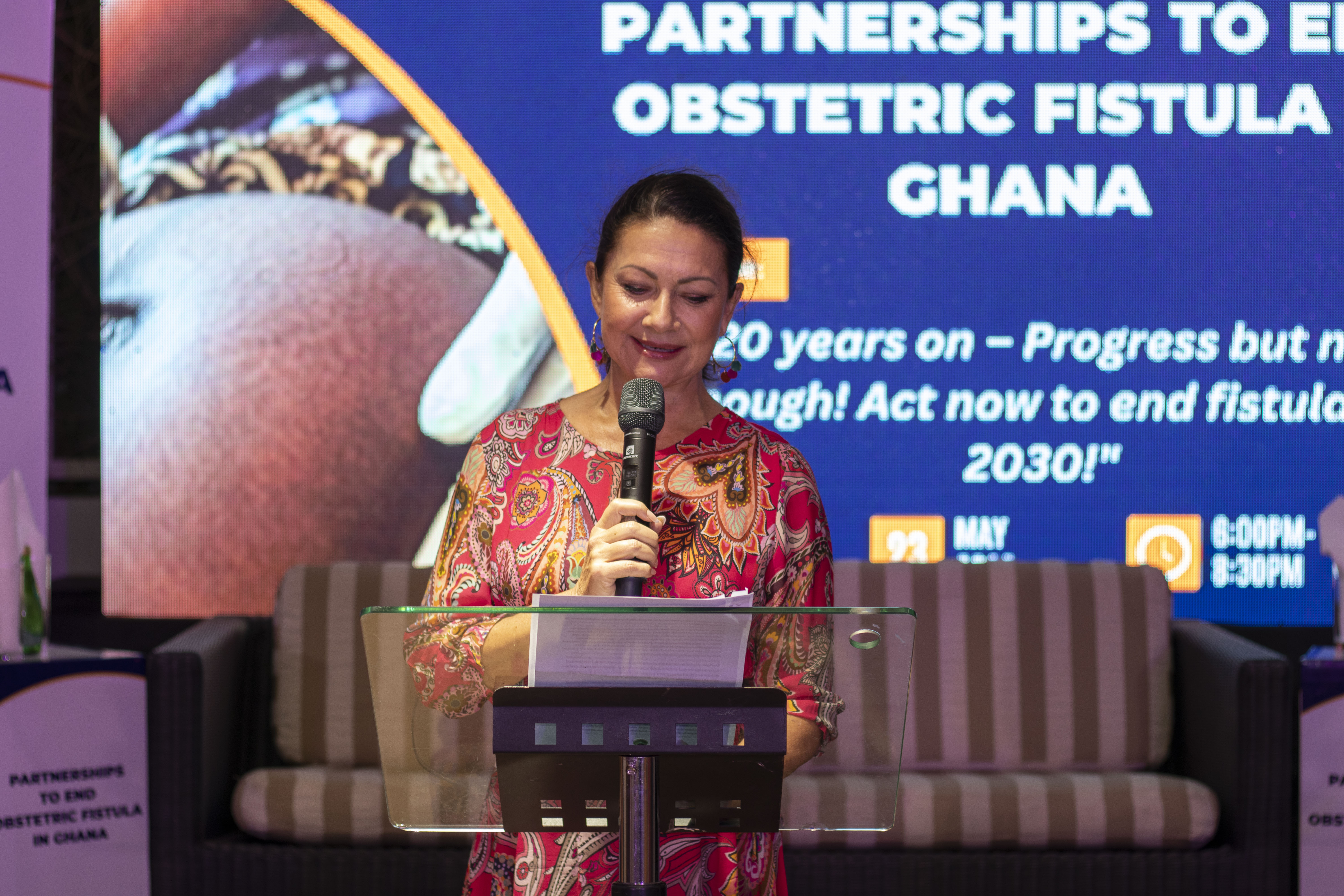
H.E. Ingrid Mollestad, the Norwegian Ambassador to Ghana delivering her remarks.
Speaking at the event, the Norwegian Ambassador to Ghana, Her Excellency Ingrid Mollestad stated that, “...one of Norway’s most fundamental objectives is to empower women and girls to be at the forefront in global efforts to improve their health.” She added that, ‘Women need access to quality medical services, including fistula repair services which are appropriate and available in a timely manner.
Reading his speech, the UN Resident Coordinator to Ghana, Mr. Charles Abani expressed heartfelt gratitude to the Norwegian Ambassador for her unflinching support to the empowerment of women and girls. He mentioned that, ‘Obstetric fistula is an outrageous social injustice often affecting impoverished women and girls with lower levels of education; those who live far to access quality healthcare and girls who are forced into early marriages.’
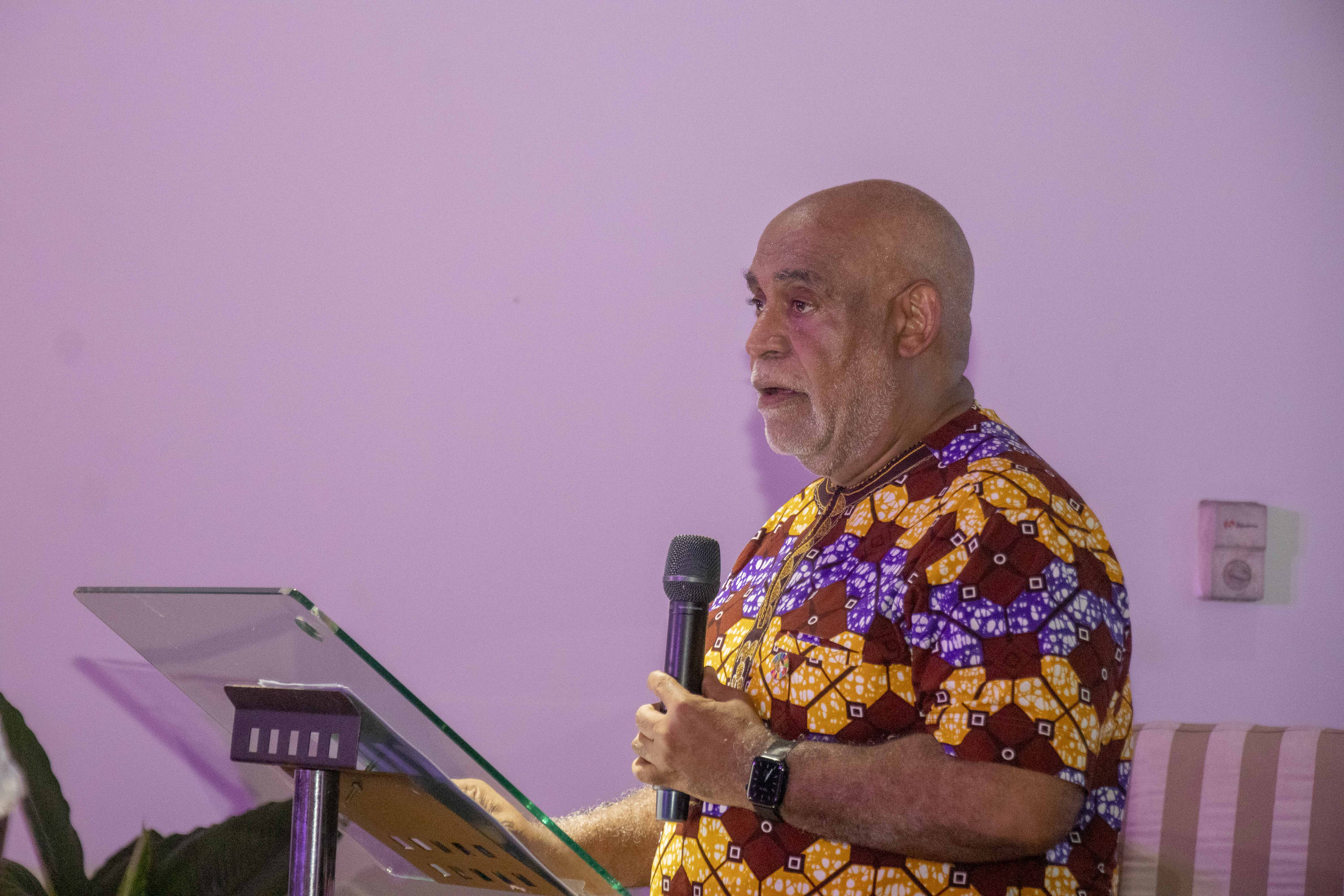
The UN Resident Coordinator to Ghana, Mr. Charles Abani delivering his remarks at the function.
To give more substance to the context, a video documentary on surgical repairs for some fistula patients in Ghana was premiered at the event to form a basis for discussion with some survivors. One of them, Taiwo Azan, stated that when she developed obstetric fistula, the smell that came from her pushed people away. ‘But my husband stayed and I am so grateful to him’. ‘I also appreciate the support of UNFPA and Dr. Ayuba who performed the surgery so that I could be free of the condition.’
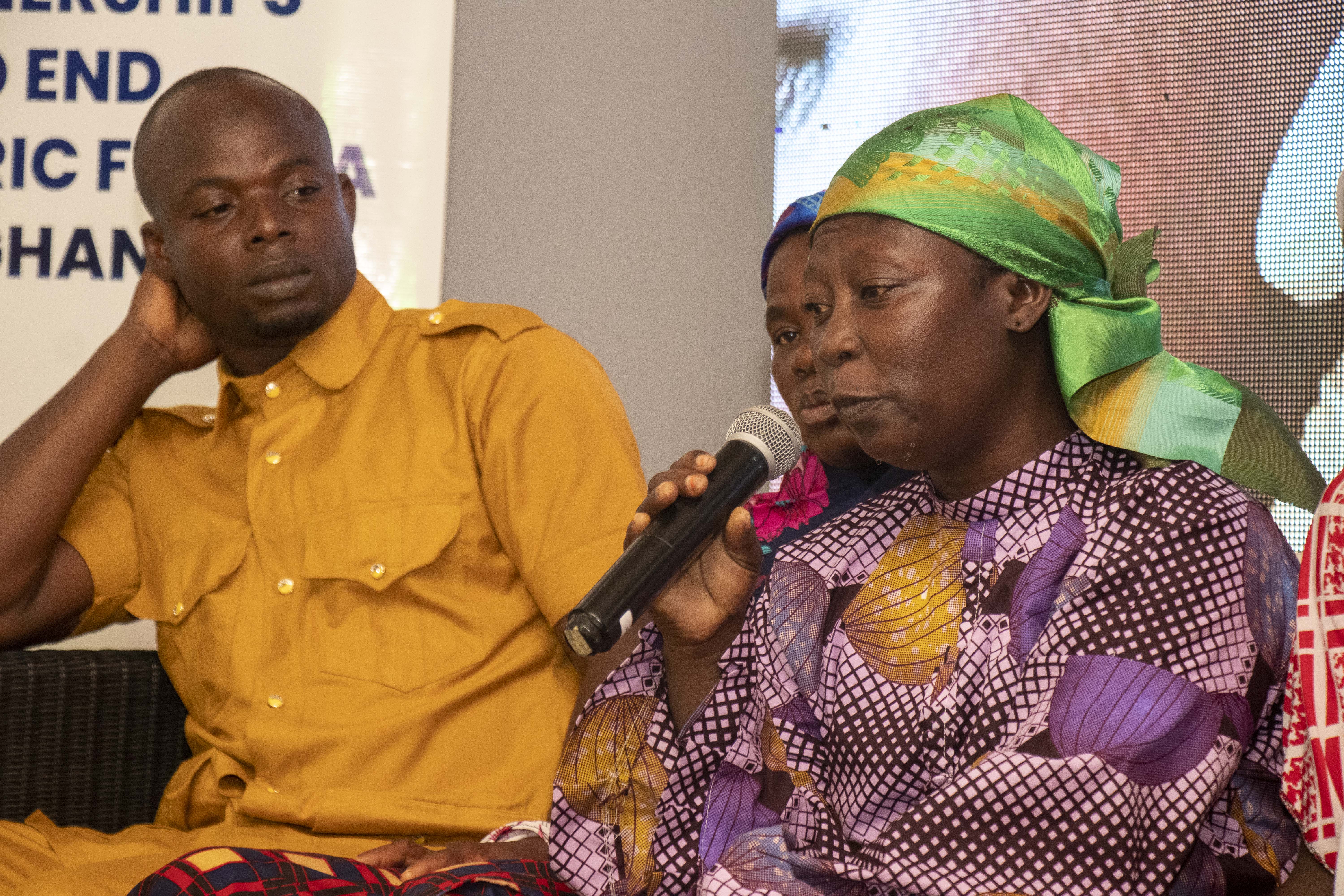
Taiwo Azan, a fistula survivor sharing her story at the event.
There was a also a panel discussion which featured the programme manager of the Safe Motherhood Programme at Ghana Health Service, Mrs. Gladys Brew, Medical Superintendent of the Yendi Government Hospital, Dr. Ayuba Seidu Abdulai and the Senior Manager and Head of Exclusive Banking at Access Bank Ghana Plc, Matilda Asante-Asiedu. The panel discussion was moderated by Dr. Kofi Issah, the Head of the Family Health Division of the Ghana Health Service.
Amongst other things, the panelists called for a national campaign which could culminate into a nationwide fundraising drive to mobilize financial resources for conducting fistula repairs for women and girls suffering from the condition. They equally called for the training of surgeons to be skilled in conducting fistula repair surgeries to save lives and restore the dignity of the women who suffer from the condition.
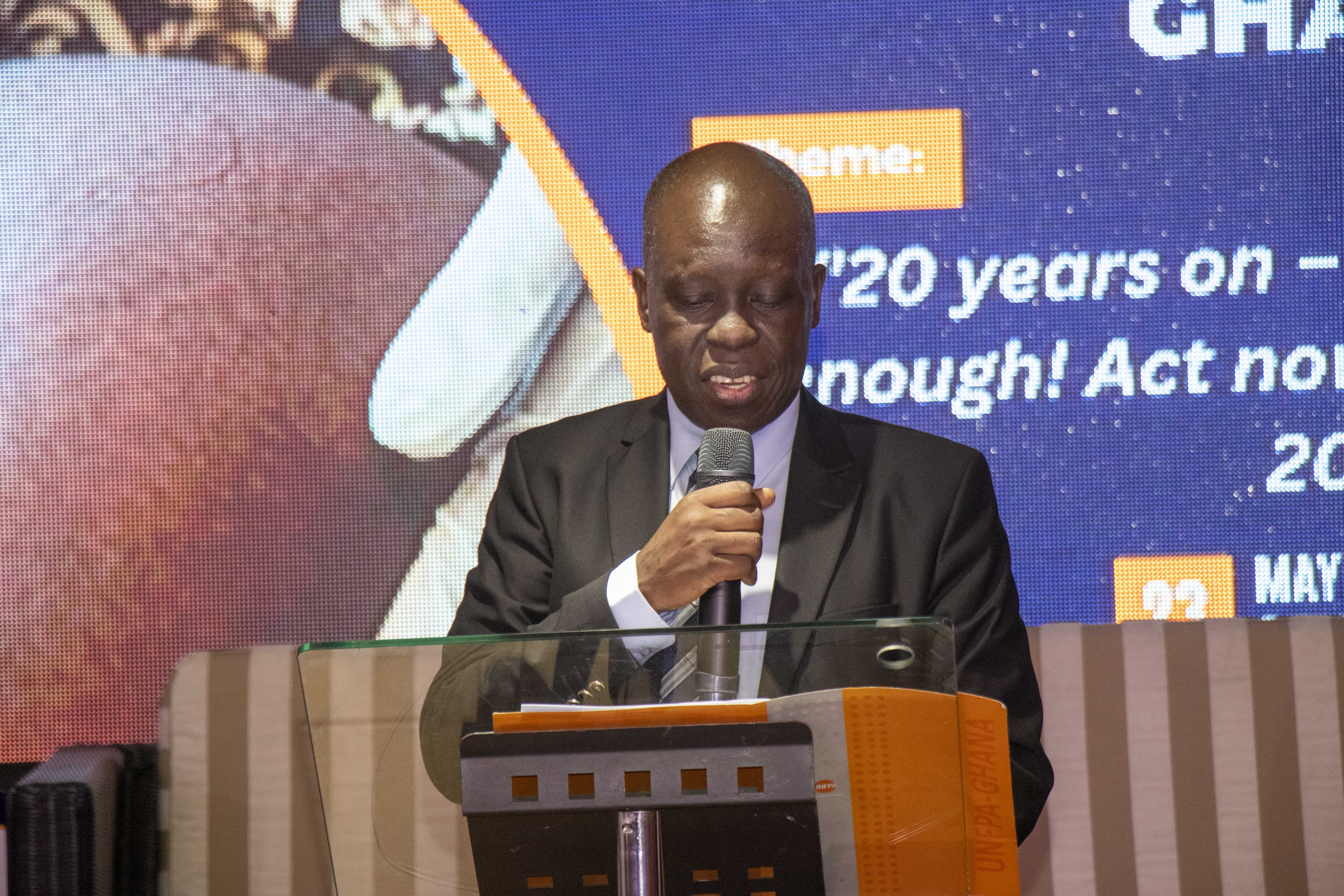
The UNFPA Country Representative, Dr. Wilfred Ochan calling on stakeholders to join the movement to eradicate Obstetric fistula in Ghana.
In his closing remarks, the UNFPA Country Representative, Dr. Wilfred Ochan, re-echoed the purpose of the gathering as being essentially to form a new and solid partnership with stakeholders to act towards ending Obstetric fistula by 2030. He stated, “The call to action is one and it is clear: Join the Partnership to End Fistula in Ghana in any way that you as an individual or institution can, to make the difference in the lives of women and girls, restore their health and dignity and contribute to their improved socio-economic wellbeing and achievement of national and global development agenda.”
Dr. Ochan acknowledged the pivotal role played by the Ghana Health Service towards the elimination of Obstetric fistula in Ghana, the support of the Norwegian Ambassador and all other stakeholders for their contribution. The event ended with a networking and cocktail session, attended by UN personnel, ambassadors, Government officials, the private sector, media and civil society actors.

